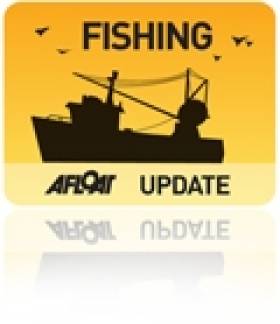Displaying items by tag: Jan Feenstra
Ministers Meet World's Biggest Seafood Company
The Minister for Agriculture, Fisheries and Food, Brendan Smith TD and Minister of State, Sean Connick TD, met yesterday with the CEO of Marine Harvest, one of the world's biggest seafood companies, which has extensive investment in the aquaculture industry right along the western seaboard of Ireland, to discuss the potential for significant expansion of the industry in Ireland.
Mr. Alf-Helge Aarskog CEO of the Norwegian based multi - national company and Mr Jan Feenstra CEO of its Irish operations, outlined to the Ministers the challenges, opportunities and potential for finfish production globally. The company's Irish fish farms, in Donegal, Mayo, Cork and Kerry, have been expanding production and hope to produce between 10 and 12,000 tonnes of salmon for export from Ireland this year. The company has been increasingly moving to the production of premium organic salmon and this year expect that 70% of their Irish production will be sold in prime European markets as organically produced fish.
The company, which currently employs 250 people in Ireland and 5,000 worldwide sees significant potential to double production and employment in Ireland over the next ten years. To achieve this the company sought to explore with Ministers how aquaculture activity can be best expanded and developed sustainably in existing and new offshore locations on the Irish coastline.
Both Ministers emphasised the synergies between the company's production plans and the broad strategic vision set out in the Government's 'Food Harvest 2020' report. The focus by Marine Harvest Ireland on the sustainable production of salmon for export , mainly through organic methods has very significant benefits for job protection and creation in communities around the coast.
Minister Smith said "Exports are fundamental to Ireland's economic recovery and role that Marine Harvest and other aquaculture operators can play in further expanding exports of seafood is hugely important." Minister Smith added that "Our seafood exports increased by 18% in value last year and our Government's Food Harvest 2020 strategy outlines the enormous export potential in this sector in coming years" .
Minister Sean Connick said that "I have over the last year focussed heavily on the Aquaculture sector as a driver of substantial permanent and sustainable employment in our coastal communities. I can see enormous potential for the expansion of both finfish & shellfish aquaculture. To this end, the expertise of my Department and it's Agencies is fully focussed on the sustainable development of the industry in line with the overall Government Strategy."





























































